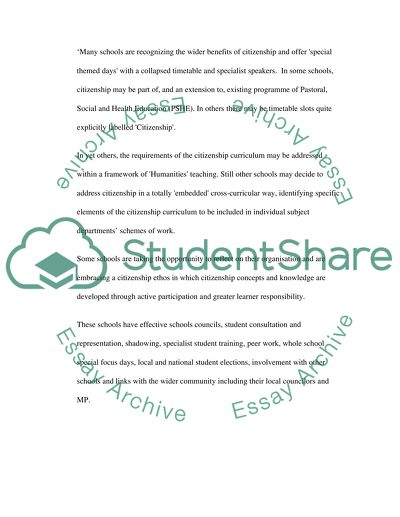Cite this document
(“Teaching Citizenship Essay Example | Topics and Well Written Essays - 2000 words”, n.d.)
Retrieved from https://studentshare.org/education/1532384-teaching-citizenship
Retrieved from https://studentshare.org/education/1532384-teaching-citizenship
(Teaching Citizenship Essay Example | Topics and Well Written Essays - 2000 Words)
https://studentshare.org/education/1532384-teaching-citizenship.
https://studentshare.org/education/1532384-teaching-citizenship.
“Teaching Citizenship Essay Example | Topics and Well Written Essays - 2000 Words”, n.d. https://studentshare.org/education/1532384-teaching-citizenship.


